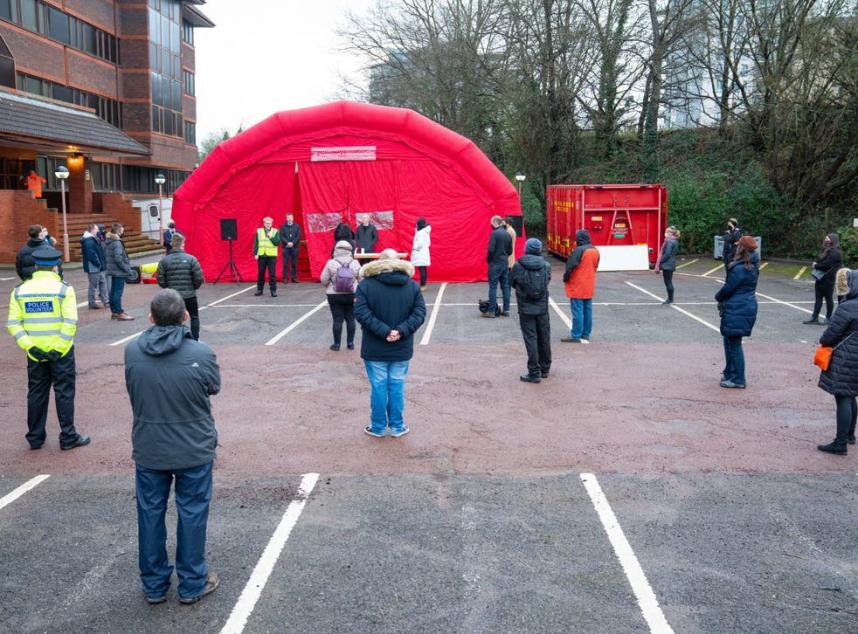
Britain begins door-to-door COVID-19 testing of 80,000 people on Tuesday in a bid to stem the spread of a new highly infectious so-called South African variant of the novel coronavirus.
Public Health England said it had identified a total of 105 cases of the South African variant since Dec. 22, and to contain new outbreaks, residents in eight areas of the country will now be tested whether or not they are showing symptoms, a process known as “surge testing”.
There are about 10,000 people in each area. Three are in London, two in the southeast, one in central England, one in the east, and another in the northwest.
Those in the affected areas will be tested, even if they are asymptomatic, to break any chain of transmission in the community.
The number of new coronavirus cases in Britain is leveling out or falling after a surge in infections at the end of last year, fuelled by a more transmissible variant found in the southeast of England.
Britain is rolling out a mass vaccination program, with nearly 9.3 million people have received the first shot, and the government and health officials are concerned new variants would undermine its efforts to bring the pandemic under control.
The Times newspaper reported that the country’s top scientific advisers had said Britain needed tougher border restrictions, but although travel to some at-risk countries has been banned, a promised hotel quarantine program has not yet started.
Scientists have said the South African variant appears to be more transmissible, but there is no evidence that it causes more severe disease. However, several laboratory studies have found that it reduces vaccine and antibody therapy efficacy.